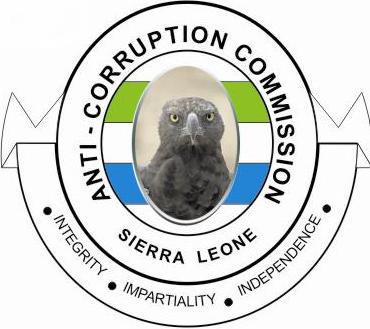By Sulaiman B. Sowa
With a mandate to engage and educate public officers on matters relating to the prevention of corruption in the workplace, the Eastern Regional office of the Anti-Corruption Commission (ACC) in Kenema has engaged staff of the Ministry Of Agriculture and Food Security in Kailahun on strengthening integrity and accountability measures in the utilization of public resources. The engagement took place on 14th September 2021 at the Ministry of Agriculture and Food Security office in Kailahun.
Speaking on accountability in public resource management, ACC’s Senior Public Education Officer Sulaiman B. Sowa said accountability is an effective and efficient benchmark in tracking the use of public resources. “Accountability means answerability or being liable for public resources entrusted to a public officer for public benefit,” he said. He singled out lack of accountability as a reason for the corrosion, wastage and loss of public properties and assets.
Mr. Sowa concluded by noting that accountability should be seen as not merely answering to what was entrusted to a public officer but how much responsibility a public officer should take in ensuring that resources entrusted for public benefit served that purpose. He therefore entreated all to use public resources in a manner that serves the best interest of the country.
Investigation Officer, Quinton David, said the Anti-Corruption Act of 2008 as amended in 2019 defines a public property as that belonging to the Government or People of Sierra Leone or a section thereof. A public officer on the other hand, is a member of a public body including a person holding or acting in an office in any of the three branches of government, whether appointed or elected, permanent or temporary, or paid or unpaid, he noted. Mr. David said these definitions encompass the responsibilities and regulations surrounding the use and management of public resources by public officers.
Elaborating on key offences in the Anti-Corruption Act of 2008 as amended in 2019, Senior Investigation Officer, Mohamed Jah, carefully outlined the various offences such as Abuse Of Office, Misappropriation of Public Property, Conspiracy and Corrupting a Public Officer; noting that each carries a minimum fine of Fifty Million Leones, a jail term of not less than five years or both jail term and fine.
Mr Jah concluded by stating that because corruption is a deliberate act other than a mere chance, the offences in the Anti-Corruption Act of 2008 as amended are set to be applicable for public officers and the general public. He cited ‘corrupting a public officer’ as one of such offences that gives public officers the opportunity to not only resist corruption from the public but report same for prosecution.
Responding, the Kailahun District Agriculture Officer, Tamba T. Karimu, described the engagement as a roadmap to Sierra Leone’s development as anything that safeguards against corruption is a great move towards national development. He appealed to the Commission for more such engagements in a bid to keep them regularly reminded and educated about laws guiding the use of public resources to promote accountability and prevent corruption.




